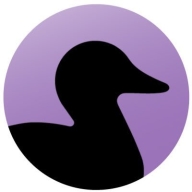

Coverity Static and GitLab are both competitors in the software development tools space, with Coverity focusing on code quality and GitLab on DevOps and CI/CD. Based on feature comparisons, GitLab has an upper hand due to its comprehensive DevOps capabilities and flexibility in deployment.
Features: Coverity Static offers deep code scanning capabilities, low false positive rates, and advisory features. Its integration with multiple CI/CD tools aids in improving the quality of work. GitLab excels with CI/CD pipeline management, seamless code merging, and robust repository management. It provides flexibility in both deployment and DevOps processes.
Room for Improvement: Coverity could enhance its user interface, reduce false positives, and expand language support. Users seek better IDE integration and dynamic scanning features. GitLab needs improved project management tool integration, support for environments like AWS, and enhanced user experience features.
Ease of Deployment and Customer Service: Coverity Static is typically on-premises, noted for stability but complexity in deployment, with responsive customer support desired to be more expedient. GitLab offers straightforward deployment in cloud and hybrid environments, with generally responsive customer service but struggles with prioritizing critical technical support issues.
Pricing and ROI: Coverity Static is pricey, often limiting for large teams but delivers strong ROI through early defect detection. GitLab provides a cost-effective model with free options available and flexible pricing, offering good value for smaller teams with its open-source nature providing scalability.
| Product | Market Share (%) |
|---|---|
| GitLab | 2.1% |
| Coverity Static | 4.2% |
| Other | 93.7% |

| Company Size | Count |
|---|---|
| Small Business | 8 |
| Midsize Enterprise | 6 |
| Large Enterprise | 31 |
| Company Size | Count |
|---|---|
| Small Business | 36 |
| Midsize Enterprise | 10 |
| Large Enterprise | 46 |
Coverity gives you the speed, ease of use, accuracy, industry standards compliance, and scalability that you need to develop high-quality, secure applications. Coverity identifies critical software quality defects and security vulnerabilities in code as it’s written, early in the development process, when it’s least costly and easiest to fix. With the Code Sight integrated development environment (IDE) plugin, developers get accurate analysis in seconds in their IDE as they code. Precise actionable remediation advice and context-specific eLearning help your developers understand how to fix their prioritized issues quickly, without having to become security experts.
Coverity seamlessly integrates automated security testing into your CI/CD pipelines and supports your existing development tools and workflows. Choose where and how to do your development: on-premises or in the cloud with the Polaris Software Integrity Platform (SaaS), a highly scalable, cloud-based application security platform. Coverity supports more than 20 languages and 200 frameworks and templates.
GitLab offers a secure and user-friendly platform for CI/CD pipeline management, code repository control, and collaboration, enhancing development speed and efficiency. It facilitates automation with extensive customization and tool integration, ideal for DevOps processes.
GitLab supports source code management, version control, and collaborative development. It's frequently used in CI/CD processes to automate builds and deployments while integrating DevOps practices. GitLab allows companies to manage repositories, automate pipelines, conduct code reviews, and maintain development lifecycles. The platform supports infrastructure and configuration management, enabling efficient code collaboration, deployment automation, and comprehensive repository handling. Many organizations commit and deploy developed code using GitLab's capabilities.
What are GitLab's most valuable features?In specific industries, GitLab serves as a backbone for source code management and CI/CD implementation. Companies leverage its capabilities for infrastructure management and deployment automation, thus streamlining project delivery timelines. Its ability to handle configuration management and code repositories effectively aids in maintaining development lifecycles, making it a preferred choice for organizations committed to enhancing their DevOps practices.
We monitor all Static Application Security Testing (SAST) reviews to prevent fraudulent reviews and keep review quality high. We do not post reviews by company employees or direct competitors. We validate each review for authenticity via cross-reference with LinkedIn, and personal follow-up with the reviewer when necessary.